It’s Squatter’s Rights Wednesday! I’m back, along with Denny Basenji, opinions on words, and a new haircut.
Also, I do know that I owe everyone my freshman year high school photo. I will post that on Friday. *pinky swear*
So, today, I’m talking about world-building for epic fantasy and science fiction. Of course, there are specifics to each genre that could merit their own blog post (and will eventually get their own blog posts), but for today, I want to talk about what they both have in common, especially when it comes to creating a world that is paradoxically both alien and familiar, comfortable and unpredictable, and just as human as you or I – tentacles notwithstanding.
Two Peas in an Alien Pod
Why are epic fantasy and science fiction similar, you ask? Well, let’s start with the most fundamental problem both face. It’s a misconception on the part of writers that regularly drives me to call upon the holy, withering powers of the Red Pen of Wrath.
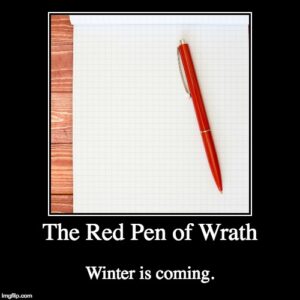
The problem is this: a premise is not a plot.
I am just as guilty as anyone when it comes to this. I would get the coolest idea for an epic fantasy story with dragons, or a magical sword, or…or…a shy, downtrodden young girl who comes into her magical inheritance and has to save the world. Or, even worse…a space opera or an oppressive alien society bent on conquering a post-apocalyptic Earth…
You get the idea. And, that’s all it is. An idea. It’s a premise, a setting, the faintest concept sketch of a backdrop. It is not a plot. While the plot and characters are shaped by the world we build, we must first have a firm idea of the actual story we want to tell before we go indulging in literal flights of fantasy.
The best, most enduring, and most powerful epic fantasy and science fiction tell stories that are rooted in deep philosophical and ethical questions about how humanity (no matter what the species “we” are in the story) makes choices when pushed at warp speed into a magical corner.
A premise is great, but what is the burning reason why we need to write this story using this setting? If we can answer this question, then we are on the right track and are good to keep going with our world-building.
Culture Shock
Let’s just put it out there from the get-go.
Fantasy that uses the ‘faux medieval fallback’ is lame. Worse, it’s lazy, and I am not going to waste the precious hours of my life reading that crap. If an author can’t be bothered to build a world that goes beyond throwing in some Lord-of-the-Rings-style magic into ‘The Princess Bride,’ then, I can’t be bothered with his or her book.
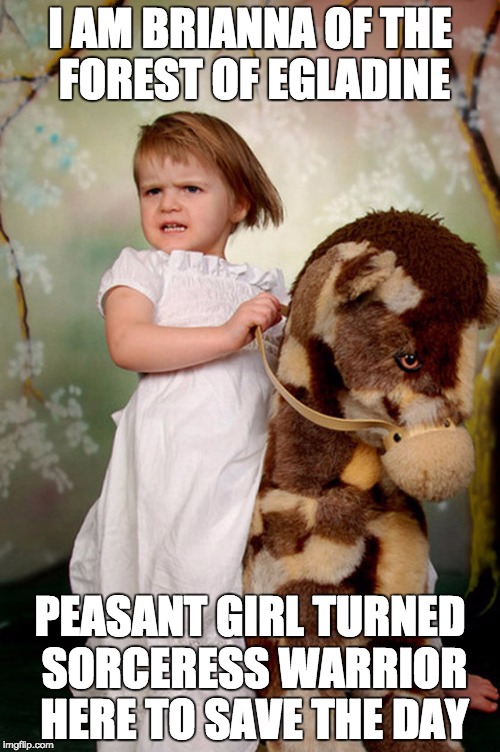
Science fiction that so blatantly ignores human nature is also lame to the point where it can undermine the believability of an entire premise. For example – and yes, this is going to be controversial, and don’t flame me if I got it wrong because this is based on a memory from years and years and years ago – when I was watching Star Trek: The Next Generation and Captain Picard said that we had evolved beyond the need for money, I laughed. And then, I got mad. Seriously??? I don’t care if it’s dollars or hotel points on Risa, you cannot convince me that given the nature of the personal and psychological problems the TNG cast dealt with demonstrated that humanity had evolved beyond our basic competitive biological nature. We would need some serious genetic rewiring in order to let go of our need to gather and accumulate resources. When I could forget that little issue, sure, the whole premise was great. When I couldn’t? It was like a bad itch with no ideological cortisone to hand.
The absence of technology does not mean a society has to be simplistic with two-dimensional characters like the mustache-twirling villain or the reluctant young hero with chronic self-esteem issues. Conversely, the presence of technology doesn’t automatically cancel out all of society’s more complex, sticky social issues.
Good world-building in these genres should be an uncomfortable process. It should poke and prod at the difficult questions we tend to avoid on an everyday basis. We know we are doing it right when we feel a kind of culture shock, just like when we wake up at 3:00 a.m. in a strange hotel room on the first night of a trip to a foreign country. Sure, it’s a bed and a room, but something about it just feels fundamentally different, no matter how much it is the same.
The More Things Change
When we are creating a future or fantasy world, we obviously have to cover all the bases of politics, religion, education, economics, industry, regionality, food, etc. It’s the kind of exercise in thinking, imagination, and logic that forces us to play every idea six moves out to see if it still works and what else it might effect. However, almost more important than the differences we create are the similarities that we keep.
Not everything needs to be changed and/or renamed. That’s not world-building. That’s complication, not complexity. It’s also the biggest and easiest trap for us to fall into.
A world that is over-complicated and needlessly different puts and keeps distance between the story and the reader, and that’s not even dipping a scaly alien toe into the issues of character development.
So, how do we determine what needs to be changed? Some of it comes from the necessities of the plot, and some of if comes from the implications of physical realities of the setting itself (Dune is a great example of this). At the end of the day, though, we need to ask ourselves some basic questions every time we want to change something:
- Is it relevant to shaping the character’s personality, motivations, and decisions?
- Is it necessary to the plot on a macro or micro level as a source of conflict?
- Can it be used as a stressor to up the tension or accelerate the pace?
One of the absolutely best examples of this that I have recently read is Kim Alexander’s The Sand Prince. It’s not just epic fantasy and an astoundingly exquisite example of world-building. It’s a riveting, meaningful story with characters I identify with and have come to care about deeply. If you read it (and you should), look at the way she uses food and colors to drive home desperation, hopelessness, anger, and stress. That’s just one small way she uses details to up the stakes for her characters and relentlessly drive the story toward its riveting climax.
And on the Seventh Day, Cait Taught a Class
If you’re feeling exhausted and perhaps even a little overwhelmed by this post, don’t worry. You’re not alone. Even God needed to rest on the seventh day, proving once again that world-building is hard.
However, even God had a system for creation, and I am teaching a tiny, pale version of that on Friday, July 28, 2017 from 7:00-9:00 p.m.
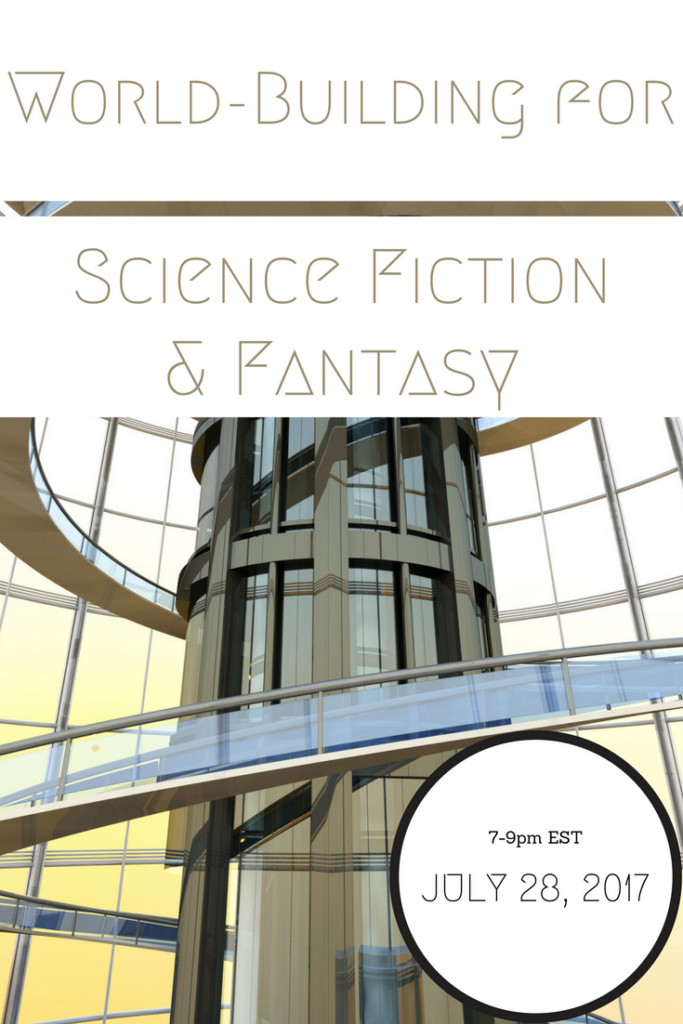 Class Title: Lasers & Dragons & Swords, Oh MY! World Building for Fantasy & Science Fiction
Class Title: Lasers & Dragons & Swords, Oh MY! World Building for Fantasy & Science Fiction
Instructor: Cait Reynolds
Price: $35 USD Standard
Where: W.A.N.A. Digital Classroom
When: FRIDAY July 28th, 7:00 PM E.S.T. to 9:00 P.M. EST
Science Fiction and Epic Fantasy are the double agents of the literary world. They simultaneously provide exotic escapism while at the same time serving as a ruthless mirror of contemporary society.
Whether it’s magic or technology, these genres bend rules and toy with the impossible.
However, it is also perilously easy to fall into the trap of bending every rule to make it easy for yourself, your plot, and your characters. When the fantastic becomes too fantastical, your world begins to lose its magic, and readers begin to distance themselves from the emotional impact of the actual story.
This class will cover a wide range of topics, including:
– Etymology: If you are going to make up names for people, places, food, customs, magic/technology, etc., you need to understand the fundamental rules of creating language.
– What’s normal and carries over from our world/time and doesn’t need description vs what is different and should be described
– How much magic or science do you have to know in order to build your world effectively?
– How to keep it real: tips and tricks for keeping your characters relatable to readers, even if they have tentacles/magical powers/chip implants.
– Spotting tired tropes and DOING BETTER. Make your fiction unique. No retreads! “Oh no, not another young, timid girl who becomes magical/laser-wielding social warrior!”
In a world of a gazillion forgettable fantasies and sci-fi stories, let Cait help you take your WORLD & STORY to a WHOLE NEW LEVEL. When world building is done right? Fans will be BEGGING to do fan fiction with the worlds you create.
World Building GOLD
You get the class (recording included in price) with Cait plus one hour of personalized one-on-one consulting regarding YOUR story.
World Building PLATINUM
You get the class (recording included in price) with Cait plus two hours of personalized one-on-one consulting regarding YOUR story and bonus worksheets. These worksheets will efficiently guide you through in-depth world-building and research, providing you with consistency for your writing and an excellent reference/style sheet for your editor and proofreader.

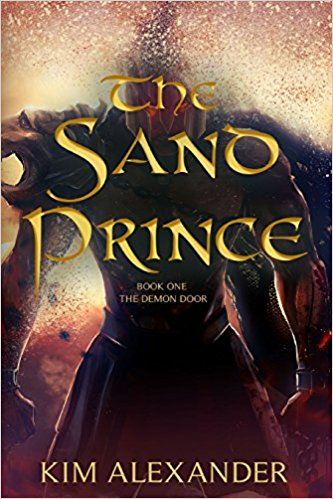
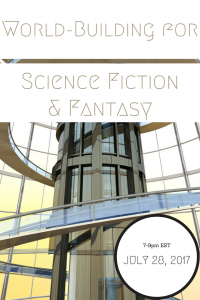







5 comments
Skip to comment form
I’d be interested in Kate’s YA class? Are you going to offer it again?
Yes, August 23rd according to my calendar. We are loading new classes.
Well there’s no climax like a riveting climax. I always say. Thanks for the kind words, and for the excellent post!
Just lobbed this into the twit-sphere – I love all the core points that will probably make most writers squirm. In my editing collaborations, I seem to do a lot of queries that point to something extraordinary in the world or circumstance, wondering if it’s really necessary or simply an expulsion of ‘how cool would it be if?’ brain matter.
Great post — as always! Thanks!
This entrance was inspiring to me, making me realize the genre of my writing would be something like science fantasy and epic fiction. There is something addicting in your blog, of course I like it !!!